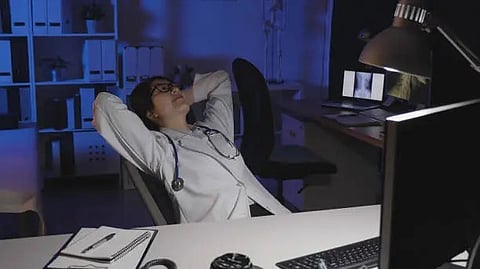

West Bengal's Health Department has proposed a new directive, mandating senior doctors to take up night shifts in government hospitals. This move aims to improve healthcare services and address the shortage of medical professionals during evening hours.
The proposal, submitted by the North Bengal Teachers' Forum (NTF), suggests that senior doctors, including professors and associate professors, should work night shifts at least once a week. This would not only enhance patient care but also provide valuable experience to junior doctors.
The NTF has emphasized that senior doctors' participation in night shifts is crucial for maintaining high standards of healthcare. The proposal also recommends:
Mandatory night shifts for senior doctors at least once a week
Flexible duty hours for senior doctors to accommodate night shifts
Incentives for senior doctors taking up night shifts
According to the proposal, senior doctors' involvement in night shifts will have several benefits.
Improved Patient Care: Senior doctors working night shifts will significantly enhance patient care and reduce mortality rates. This is crucial, especially in intensive care units where timely decision-making is critical.
Enhanced Training for Junior Doctors: Senior doctors' presence during night shifts will provide valuable guidance and training to junior doctors. This hands-on experience will help junior doctors develop their skills and confidence in managing complex cases.
Increased Accountability: With senior doctors on board, there will be greater accountability and supervision, ensuring that patients receive the best possible care. This will also encourage junior doctors to take ownership of their work and make informed decisions.
Addressing Shortage of Medical Professionals: It will help address the shortage of medical professionals during evening hours. This will ensure that patients receive continuous care, regardless of the time of day.
References:
West Bengal Department of Health & Family Welfare https://www.wbhealth.gov.in
National Blood Transfusion Council (NBTC) & National Blood Transfusion Training Centre (NBTT) https://nbttc.co.in
(Input From Various Sources)
(Rehash/Neha Kamble/MSM)
